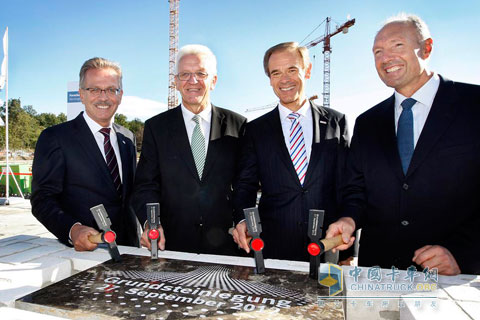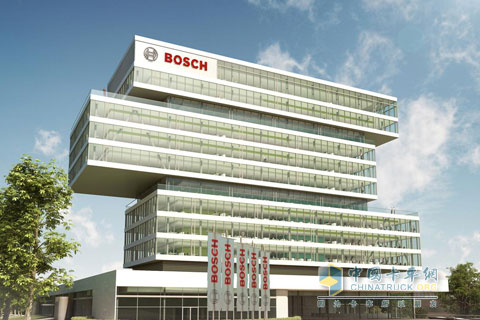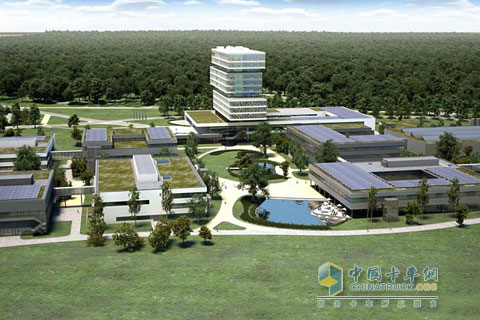Recently, Bosch has officially laid the foundation for the new headquarters of the Global Academia Sinica in Renningen, Baden-Württemberg, Germany. The construction of related projects has entered a new phase. The new headquarters near Stuttgart, where Bosch headquarters is located, has a total investment of approximately 310 million euros. It will build 14 new buildings with a total area of ​​approximately 100 hectares, which will become an important hub for Bosch's global technology R&D network. By 2015, approximately 1,200 Bosch R&D personnel will be stationed at the new headquarters to carry out research and development in materials, technologies, new systems, components and manufacturing processes.

The official opening of the new headquarters of Bosch Academia Sinica. In the picture: Dr. Volckermar__ Dr. Dunner (second from right), Dr. Klaus Dieterich (right)
“The new headquarters in Reingen will be an important innovation base for Bosch to build its future core competitiveness,†said Dr. Volckermar Dunner, Chairman of the Board of Bosch Group. “Bosch will uphold the concept of “technology to achieve the beauty of lifeâ€. Respond to the current challenges through innovative R&D."

Bosch Academia Sinica new headquarters
“By building closer communication channels for engineers and R&D personnel, we continue to strengthen cross-domain knowledge sharing and further encourage innovation.†Dr. Klaus Dieterich, president of the Bosch Group Academia Sinica, said, “In addition, we are also involved with universities and scientific research. Institutions and industry partners have carried out more than 250 cooperation projects.†At present, Bosch Group Academia Sinica has set up eight research and development divisions worldwide, one of which is located in Shanghai, China.

Bosch Academia Sinica New Headquarters Park
Over the past 20 years, Bosch has invested approximately 50 billion euros in research and development. In 2011, the Bosch Group applied for 16 patents on average every working day, leading the world. In 2012, Bosch plans to increase its R&D investment to approximately 4.6 billion euros. By the end of 2012, Bosch will have a total of 41,000 R&D personnel worldwide.
In China, Bosch has established 13 technology centers in its three major businesses, and more than 2,700 R&D personnel are dedicated to developing products and technologies that meet the needs of the local market. In order to meet the national energy-saving and emission-reduction targets, Bosch China is also committed to green technology innovation. In early 2012, Bosch China established a horizontal functional department to integrate its thermal technology, solar energy technology and security system; in the field of electric mobility, local research and development of about 200 people. The team is dedicated to the development of new energy automotive technology.
An electromagnetic flowmeter is a device used to measure the flow rate of a conductive liquid in a pipe. It works by applying a magnetic field to the liquid and measuring the voltage generated as the liquid flows through the magnetic field. This voltage is proportional to the velocity of the liquid, allowing for accurate flow rate measurements. Electromagnetic flowmeters are commonly used in industries such as water treatment, chemical processing, and wastewater management.
Electromagnetic Flow meter
Dongguan Runfengda F&M Co., Ltd , https://www.runfengd.com